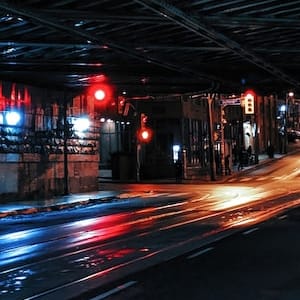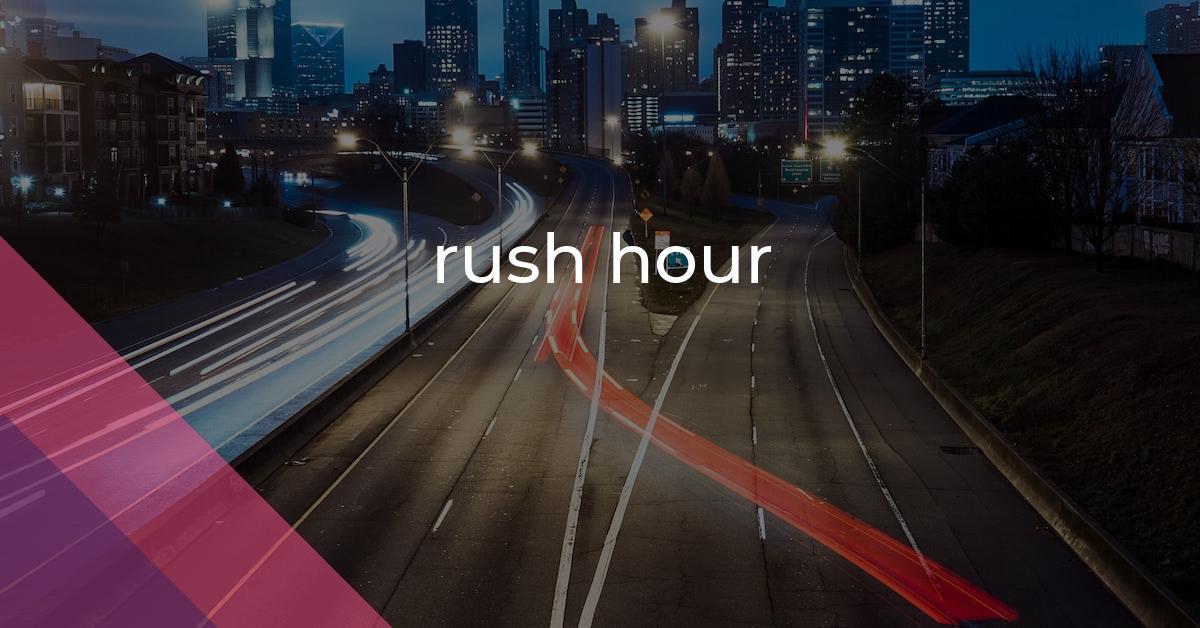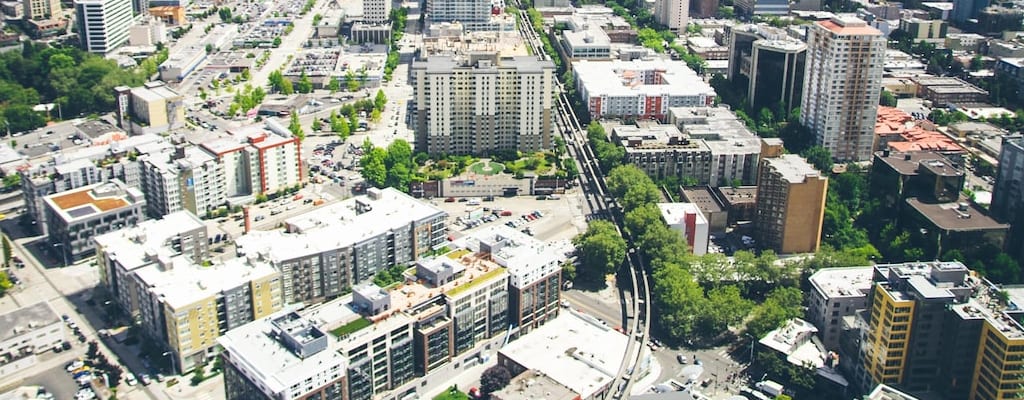rush hour: Idiom Meaning and Origin
What does ‘rush hour’ mean?
The idiom "rush hour" refers to the busy period of the day when traffic is most congested due to people traveling to or from work. It is characterized by heavy traffic and often results in longer travel times.

Idiom Explorer
The idiom "we haven't got all day" means that there is limited time to do something and suggests the need to hurry or not waste time.
The idiom "run over" means to hit or knock down someone or something with a vehicle. It can also refer to reviewing or reiterating something quickly, and it is often used to describe time that exceeds the original plan.
The idiom "run late" means to be behind schedule or to not arrive or finish something on time.
The idiom "run high" refers to when emotions or tensions are intense or reaching a peak level. It describes a situation where feelings, such as anger, excitement, or anxiety, are strong and powerful.
The idiom "run down the clock" refers to a situation where a person intentionally takes actions to use up time, usually in order to avoid or delay a specific event or outcome.
"Run a red light" is an idiom that means to drive through an intersection while the traffic light is showing red, violating traffic rules and potentially causing an accident.
The idiom "round the clock" means continuously or without stopping, emphasizing the full 24 hours of a day.
The idiom "rough trot" refers to a difficult or challenging period of time or situation. It conveys the idea of facing hardships or experiencing a series of problems.
The idiom *rough patch* refers to a difficult or challenging period of time in someone's life or a situation. It implies that things are not going well and there are obstacles or problems to overcome.
The idiom "right away" means immediately or without delay.
The Commuter's Dilemma
The idiom "rush hour" is a commonly used phrase in American English to describe the times during the day when traffic is heavily congested. It refers to the periods when there is a significant increase in the number of vehicles on the roads, resulting in slower and more chaotic traffic flow. The term "rush hour" is primarily used in urban areas and is generally associated with the morning and evening commute.
The origins of the idiom "rush hour" can be traced back to the late 19th century. The term "rush" refers to the act of moving quickly, while "hour" denotes a specific duration of time. Together, they create a descriptor for the time of day when people are rushing or hurrying, typically during morning and evening commute times. The concept of rush hour became increasingly relevant as cities grew and transportation systems became more complex.
During rush hour, roads and highways are often overwhelmed with an unusually high volume of vehicles. This influx of traffic can cause significant delays, congestion, and frustration among commuters. The term "rush hour" is used to convey the intense and hurried atmosphere that accompanies these periods of heavy traffic.
Rush hour is primarily associated with urban areas that have a high population density and a significant number of commuters. It is during these peak hours that individuals are rushing to arrive at work or return home, leading to traffic congestion and longer travel times. The exact timing of rush hour can vary from city to city, but it typically occurs during the morning hours between 7:00 am and 9:00 am and in the evening between 4:00 pm and 7:00 pm.
The idiom "hurry up and wait" is directly related to rush hour. During rush hour, commuters often experience the frustration of moving at a slow pace or coming to a complete standstill in traffic. They rush to leave their homes or offices, only to encounter heavy traffic that causes them to wait for extended periods. This phrase perfectly captures the experience of rushing to get somewhere but being forced to wait due to the congestion during rush hour.
The implications of rush hour extend beyond just traffic congestion. It can contribute to increased stress levels, reduced productivity, and a negative impact on the environment. The idiom "pressed for time" is relevant here, as rush hour often leaves commuters feeling pressured or hurried due to the time constraints they face. They may be running late for work or appointments, and the heavy traffic during rush hour only exacerbates these time constraints.
The term "hour of need" can also be applied to rush hour. Many people rely heavily on their vehicles to get to work or other important destinations. Rush hour is often the time when people are most in need of efficient and timely transportation. However, the congestion and slower traffic flow during rush hour can hinder their ability to meet their needs during this critical time of the day.
Furthermore, rush hour is characterized by a significant amount of activity and movement. The idiom "hustle and bustle" accurately describes the atmosphere and energy during these periods of heavy traffic. Commuters are constantly moving and trying to navigate through the congestion, resulting in a fast-paced and bustling environment on the roads.
The pressure of rush hour can also create a sense of urgency for many individuals. The idiom "against the clock" comes to mind when considering rush hour, as commuters often feel like they are racing against time to reach their destinations before the traffic becomes even more congested. This added time constraint can heighten the stress and intensity of rush hour.
While rush hour is a term commonly used in the United States, other countries and regions may have their own idioms to describe the same phenomenon. For example, the British use the term "peak hour" to refer to the times of day when traffic is at its busiest. These variations reflect the universal challenge of managing traffic during periods of peak demand.
The idiom "rush hour" encapsulates the intense periods of heavy traffic that occur during morning and evening commute times in urban areas. It serves as a descriptor for the chaotic and rushed atmosphere that accompanies these congested periods. Despite the challenges it presents, rush hour has become an integral part of American society, shaping daily routines and influencing transportation planning. Its continued usage demonstrates the enduring relevance and impact of this idiom on our daily lives.
Example usage
Examples of how the idiom "rush hour" can be used in a sentence:
- The traffic during rush hour is horrendous.
- I usually leave work early to avoid the rush hour.
- Public transportation tends to be overcrowded during rush hour.
More "Transportation" idioms



